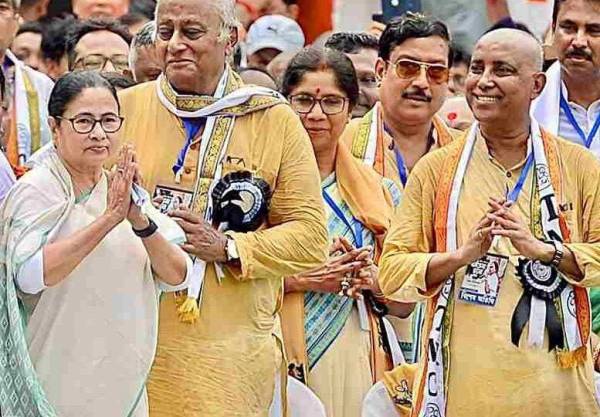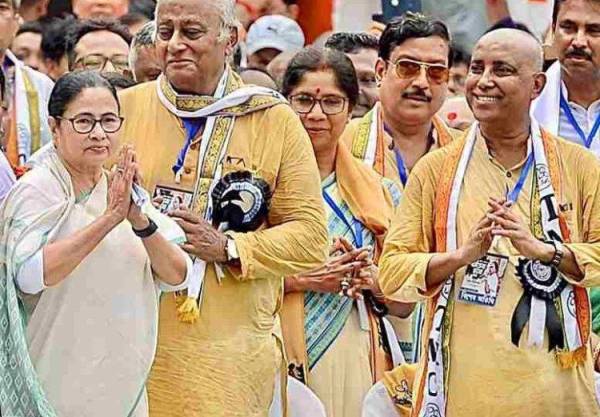
SIR: Mamata Banerjee, the chief minister of West Bengal, led a large-scale demonstration against the Election Commission of India’s (ECI) Special Intensive Revision (SIR) process to update electoral records in Kolkata on Tuesday.

Abhishek Banerjee, a member of the Trinamool Congress (TMC) and the chief minister’s nephew, joined her on the protest march from Red Road to Jodasanko.
A message of togetherness was sent by religious leaders from all of the major religions, including Christianity, Islam, and Hinduism, who were seen strolling together at the head of the demonstration.
The Election Commission of India’s SIR exercise has been dubbed “Bangla-Birodhi” by Banerjee’s party, the TMC.
The Special Intensive Revision (SIR) of electoral registers in 12 states and Union Territories (UTs), including West Bengal, started the day after the TMC rally.
After the names of over 68 lakh voters were removed from the electoral lists during the SIR operation, which was conducted in Bihar before to the state assembly elections, opposition parties widely criticized the practice. The ECI launched phase two of the electoral register revision in 12 more states and union territories last month, after the conclusion of SIR in Bihar.
In West Bengal, Tamil Nadu, Kerala, Uttar Pradesh, Madhya Pradesh, Rajasthan, Chhattisgarh, Goa, Gujarat, Puducherry, Andaman & Nicobar Islands, and Lakshadweep, the exercise would include around 51 crore voters.
Four of the states and union territories where SIR has begun—Tamil Nadu, Kerala, West Bengal, and Puducherry—will have elections the following year.
Beginning on Wednesday, the house-to-house enumeration procedure is expected to be completed by December 4. People will then have until January 8 to file claims and complaints when the Election Commission publishes the draft electoral registers on December 9.
Verification of eligible voters will be conducted from December 9 to January 31. On February 7, the final electoral rolls will be released.